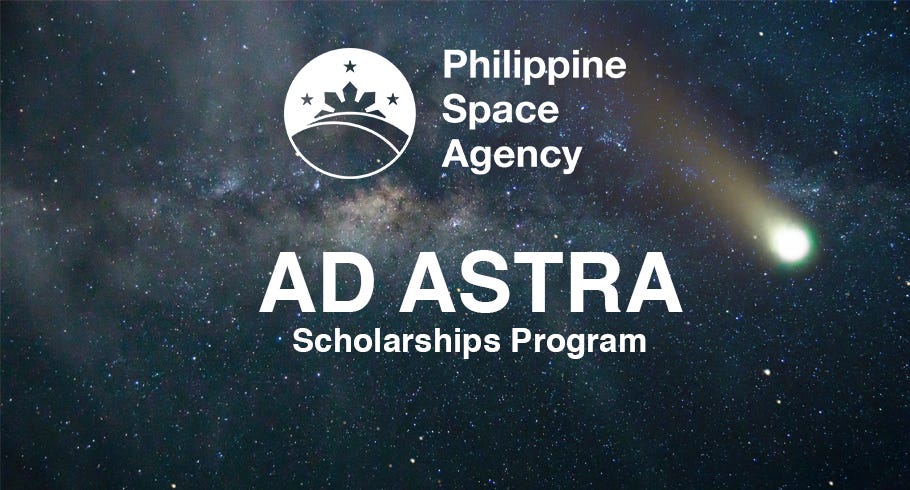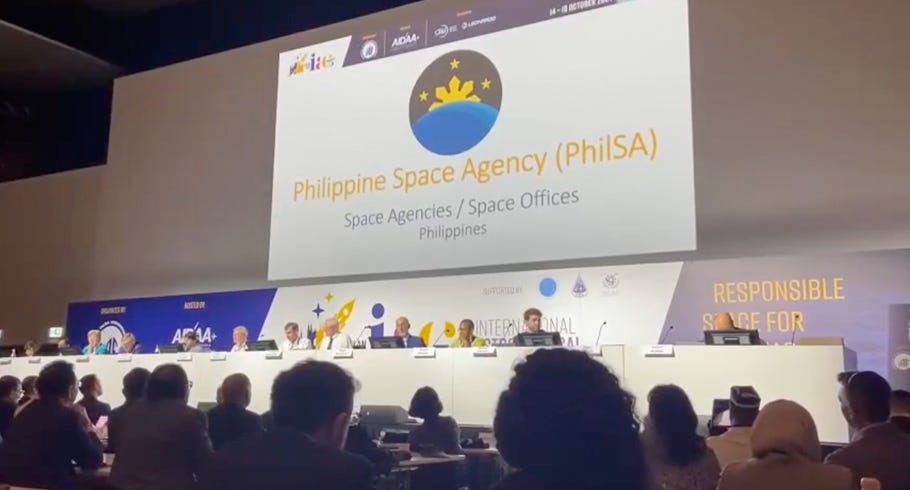Southeast Asia Space Roundup: 16 to 22 January 2025
A summary of all the space news in Southeast Asia over the past week, brought to you by AzurX
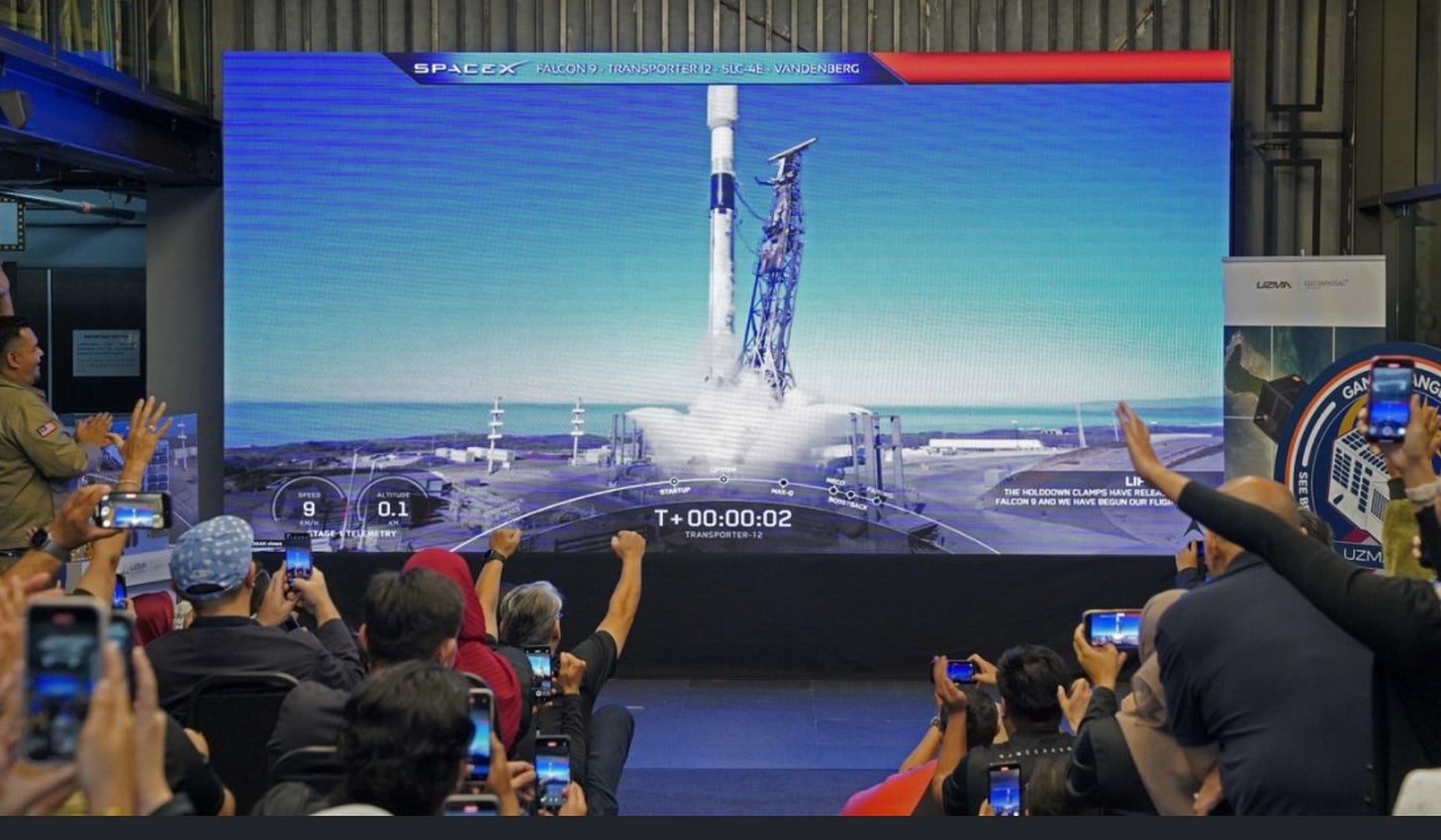
The following are the major space developments in the Southeast Asian region tracked by Southeast Asia Space Monitor over the past week:
Malaysia Space Developments
Ministry: Malaysia’s UzmaSat-1 Launch Marks Major Space Policy Milestone for Country
The successful launch of UzmaSat-1, Malaysia’s first Earth observation satellite developed by local firm Uzma Bhd, marks a significant milestone under the National Space Policy 2030 (DAN2030) and the Malaysia Space Exploration Action Plan 2030 (MSE2030). Launched aboard SpaceX’s Falcon 9 from Vandenberg Space Force Base, the high-resolution satellite operates at 500 kilometers in low Earth orbit, providing imagery with a spatial resolution of 50-70 centimeters. Equipped with advanced multi-spectral sensors, including RGB and near-infrared, UzmaSat-1 supports applications in national security, defense, and food security management. This achievement underscores the Malaysian government’s commitment to fostering local industry participation in the space sector, optimizing national infrastructure, and driving the development of a robust space ecosystem. Malaysia’s Ministry of Science, Technology, and Innovation (MOSTI) highlighted the satellite as a catalyst for strengthening Malaysia’s capabilities as a creator of space technology, promoting innovation, and advancing the national space economy.
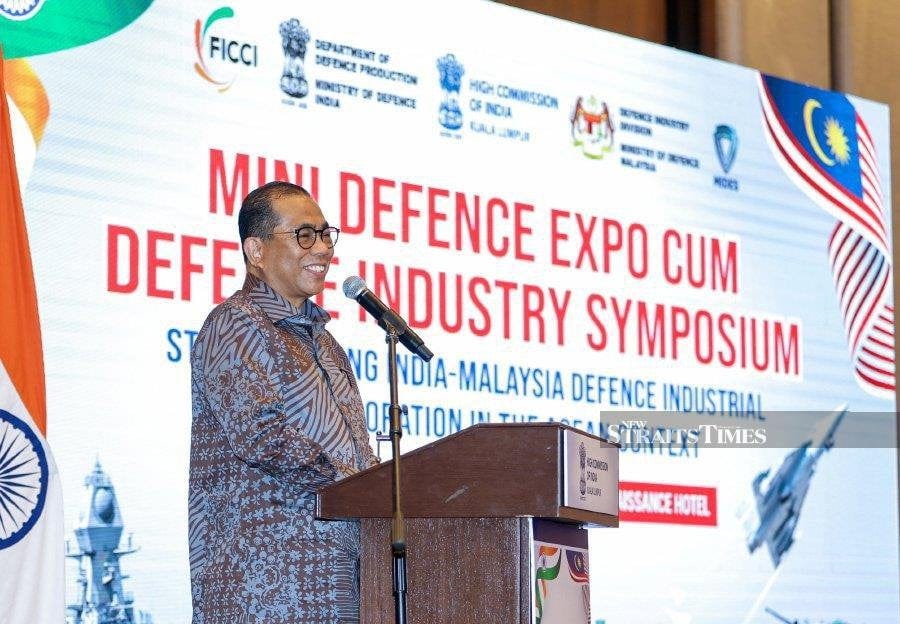
Malaysia Deepens Defense Cooperation With India for Military Satellites, Other Technologies
Malaysia is deepening its defense collaboration with India, focusing on advanced areas such as military satellite development, artificial intelligence (AI), unmanned systems, and cybersecurity through its Future Force Development Program. Defense minister Datuk Seri Khaled Nordin, speaking at the Malaysia-India Mini Defence Expo and Symposium 2025, highlighted India’s leadership in defense manufacturing, citing its capabilities in producing submarines, aircraft, patrol vessels, and advanced weaponry. These partnerships build on four decades of Malaysia-India defense cooperation and leverage platforms like the Defence Service Asia Exhibition and Langkawi International Maritime and Aerospace Exhibition (LIMA) to foster industry engagement. The collaboration underscores Malaysia's intent to enhance local expertise and resources, aligning with India’s advanced defense capabilities to drive innovation and bolster regional security.
Malaysia Announces Intention to Lead ASEAN Space Economy Development
Malaysia’s Ministry of Science, Technology, and Innovation (MOSTI) will spearhead the Association of Southeast Asian Nations (ASEAN) Space Economy Moonshot Programme, a 2025 mega-project designed to integrate space economy initiatives with critical sectors such as agriculture, communication, transportation, and education. Minister Chang Lih Kang emphasized that the program aims to position Malaysia as a leader in the ASEAN space economy by leveraging its strategic location, technological expertise, and robust policies. The initiative also prioritizes developing downstream industries like rare earth element (REE) production for advanced applications such as supermagnets, aligning with broader goals of sustainable economic growth and technological innovation. Key sectors of focus include artificial intelligence, green technology, and REE, targeting global challenges like climate change and food security while attracting international investment. Chang highlighted the need for detailed project mapping to optimize resource allocation and stressed the importance of public awareness about science, technology, and innovation (STI) in fostering a progressive society. Governance measures, including regular progress updates on strategic initiatives like remote sensing satellites and hydrogen refueling stations, were also announced.
Profile: Ananda Krishnan and the Rise of Malaysia’s MEASAT
Ananda Krishnan's transformative vision for Malaysia's space industry culminated in the establishment of MEASAT Global Bhd, a satellite solutions provider that has revolutionized connectivity in the region. From launching Malaysia's first satellites, MEASAT-1 and MEASAT-2, in the 1990s to the deployment of MEASAT-3D in 2022, his initiatives bridged digital divides, enhanced national security, and positioned Malaysia as a leader in satellite communications. Under his leadership, MEASAT pioneered the use of Ku-Band frequencies in tropical regions and developed a robust satellite network covering 130 countries and 80% of the global population. The company’s innovative capabilities support diverse applications, from direct-to-home broadcasting to broadband initiatives. Beyond technological achievements, MEASAT fostered international collaborations, such as developing Azerbaijan's satellite expertise, further solidifying its reputation as a regional and global satellite powerhouse. Ananda’s legacy of innovation continues to shape Malaysia’s space aspirations, driving connectivity and regional leadership in satellite communications.
Thailand Space News
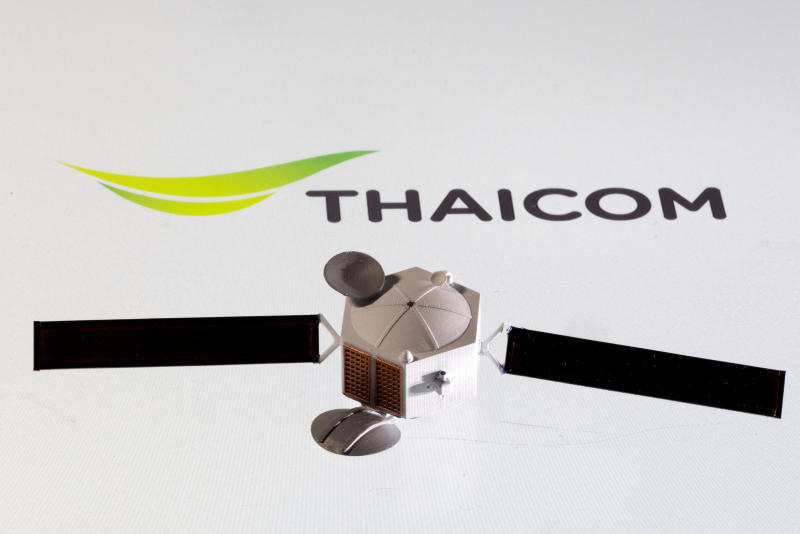
Thailand’s Thaicom and AIS Urge Shareholders to Reject Undervaued Acquisition Offers
The boards of Thailand-based telecom firms Advanced Info Service (AIS) and Thaicom have urged shareholders to reject acquisition offers from their controlling entities, Gulf Energy Development and Intouch Holdings, citing undervaluation. The proposed merger between Gulf Energy and Intouch, announced in July 2024, aims to create a $30 billion entity. Shareholders of Gulf Energy, led by Thai billionaire Sarath Ratanavadi, have approved the merger, including offers to acquire 58.9% of Thaicom at 11 baht ($0.32) per share and AIS at a revised 211.43 baht ($6.14) per share. However, both AIS and Thaicom argue that these offers fall below fair market value, with AIS’s shares trading at 290 baht ($8.42), significantly above the tender offer price. Thaicom’s stock price has also risen since the merger announcement, ending flat at 12.3 baht ($0.36), exceeding the offer price. The rejection reflects concerns over shareholder value amid rising market performance for both companies.
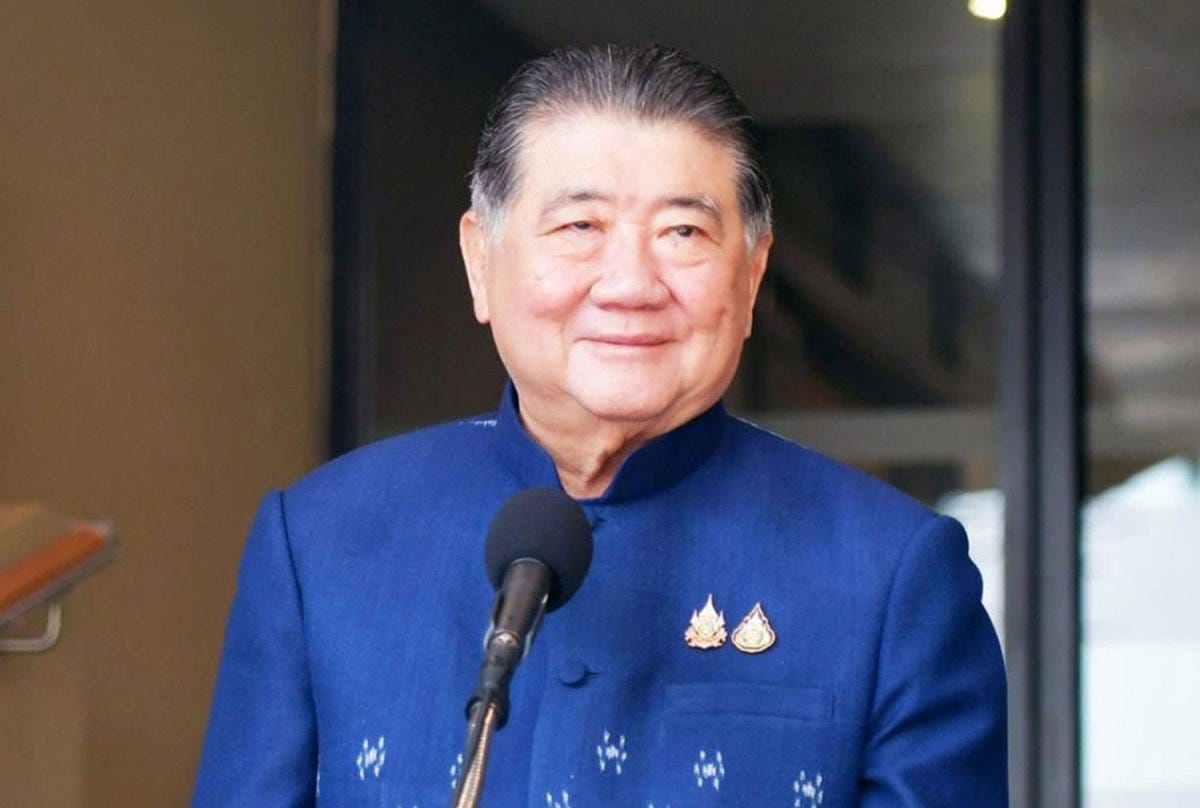
Thailand’s Defense Minister Calls for Satellite Technology in Counterinsurgency Efforts
In response to escalating violence in Thailand’s southern border regions, Deputy Prime Minister and Defense Minister Phumtham Wechayachai has called for a comprehensive overhaul of the country’s security strategy, emphasizing the integration of advanced technologies such as drones and satellite systems for enhanced surveillance and operational efficiency. Following recent attacks, including a motorcycle bomb in Pattani and an explosive ambush in Narathiwat, Phumtham criticized the dual-focus approach of military operations and peace negotiations, advocating for their separation to achieve meaningful progress. Central to his initiative is the formation of a revised peace committee and a shift in military roles, including disaster response and streamlined forces via early retirement schemes. This strategic pivot highlights the critical role of modern satellite technology in monitoring and mitigating security risks, reflecting an urgent need for innovation in counterinsurgency efforts.
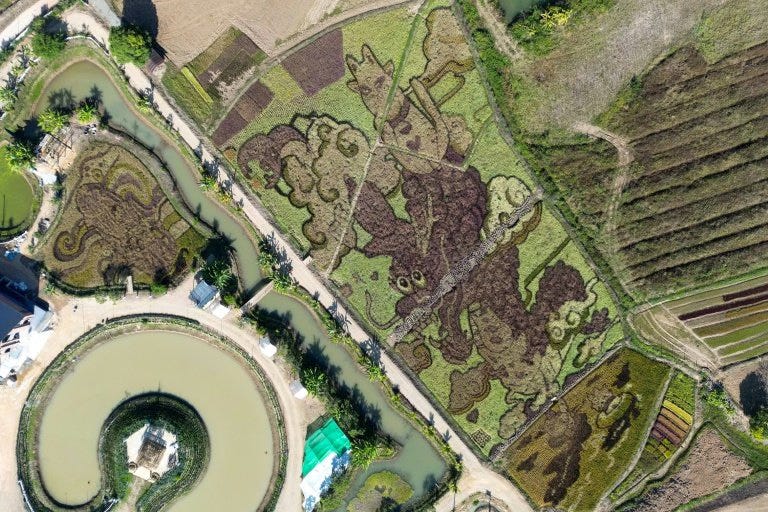
Thailand Rice Paddy Artwork Made Using AI and Satellite Imagery
In northern Thailand, a two-acre paddy field in Chiang Rai has been transformed into an intricate artwork symbolizing hope and resilience following last year’s devastating floods. Depicting a dragon protectively holding a cat—representing last year's zodiac and the community, respectively—the design underscores the town's recovery efforts. Tanyapong Jaikham, an automobile engineer, led a team of 20 friends and family to execute the project using AI technology and satellite imagery, showcasing the integration of traditional mediums with modern innovation. Completed at a cost of 500,000 baht ($14,500), the artwork reflects meticulous planning and serves as a poignant reminder of unity and adaptation in the face of natural disasters.
Philippines Space Developments
Philippines Partners With South Korea to Develop National Communications Satellite Roadmap
The Philippines has partnered with South Korea under the Korean-Philippine Economic Innovation Partnership Program (EIPP) to advance digital transformation and foster economic growth. At the inaugural meeting held in Makati City, officials outlined three key projects: developing a National Communications Satellite Roadmap, implementing the Philippine E-Government Master Plan, and establishing an Integrated Data Center. These initiatives aim to strengthen the Philippines’ telecommunications satellite industry, enhance e-government efficiency through technology exchange, and adopt South Korea's expertise in integrated data center operations. Launched by South Korea’s Ministry of Economy and Finance, the EIPP underscores a commitment to sustainable, mutual economic development through policy and technical cooperation. The National Economic and Development Authority (NEDA) highlighted the collaboration as pivotal to driving innovation and achieving the Philippines’ goal of transitioning to upper-middle-income status, reflecting the broader ambition of both countries to thrive in a technology-driven global economy.
Philippine Space Agency Launches 2025 AD ASTRA Scholarships Program
The Philippine Space Agency (PhilSA) has launched its AD ASTRA Scholarships Program, offering comprehensive funding opportunities for Filipinos aiming to pursue advanced degrees in space science, technology, and applications (SSTA). Open to Bachelor's degree holders, the program covers disciplines such as remote sensing, satellite systems engineering, space law, and AI, among others. Scholarships include full, partial, and sandwich options for studies at local and international institutions, aligned with PhilSA’s Key Development Areas (KDAs). Benefits range from tuition and living stipends to research grants and technological support. With a strong focus on fostering innovation and local expertise, the initiative underscores PhilSA’s commitment to advancing the Philippines' capabilities in space technology while supporting global collaboration. Applications are accepted year-round with specific deadlines, reflecting PhilSA's drive to build a skilled workforce that can propel the nation's space agenda forward.
Philippine Space Agency Partners With Fulbright Philippines to Offer U.S. Scholarships in Space Topics
Fulbright Philippines, in collaboration with the Philippine Space Agency (PhilSA), has launched the Fulbright-PhilSA Foreign Student Program in SSTA, offering scholarships for master’s or doctoral studies in U.S. institutions for the 2026-2027 academic year. The program prioritizes fields such as space applications for Earth observation and telecommunications, spacecraft systems engineering, space science, and space law. Covering tuition, travel, allowances, and insurance, the scholarship aligns with PhilSA's Key Development Areas to support national development and innovation. Applications are open until 18 April 2025, and eligibility includes Philippine citizenship, academic excellence, and a commitment to return and serve in the Philippines.
Philippine Space Agency Inducted as Full Member of the International Astronautical Federation
The Philippine Space Agency (PhilSA) has been officially inducted as a full member of the International Astronautical Federation (IAF), the world’s largest international space organization, during the IAF General Assembly held at the International Astronautical Congress (IAC) in Milan, Italy, in October 2024. Founded in 1951, the IAF includes over 563 organizations from 81 countries, spanning space agencies, corporations, research institutions, and universities. PhilSA’s membership enhances its capacity for global collaboration, enabling stronger partnerships with international space agencies and access to the IAF’s multidisciplinary forums for advancing space exploration and technology development. This milestone reinforces the Philippines’ commitment to fostering international cooperation and innovation in the space sector.
Vietnam Space News
French Companies Positioning to Supply Vietnam With Reconnaissance Satellites
French companies are refining their strategies to position their space intelligence solutions, including reconnaissance satellites, within Vietnam. Despite challenges posed by Vietnam's stringent anti-corruption measures and a procurement approach that diverges from French practices, these firms have adapted to navigate the complexities. The French companies understood to be competing for Vietnamese contracts include Airbus Defence and Space, Thales Alenia Space, and Prométhée Earth Intelligence. This targeted approach reflects France’s ambition to secure a foothold in Vietnam’s growing space intelligence sector while addressing the nuanced regulatory and political environment. Lockheed Martin from the United States and Israel Aerospace Industries (IAI) from Israel are also understood to be competing to provide Vietnam with high-resolution optical Earth observation satellites.

Vietnam Taps Expats in Belgium and Luxembourg to Advance National Satellite Ambitions
A seminar co-organized by the Embassy of Vietnam in Belgium and Luxembourg and the Vietnamese Mission to the EU highlighted the potential for strengthened cooperation between Vietnam and the EU, with a particular emphasis on satellite technology and digital transformation. The event, which gathered 140 experts and intellectuals from leading research institutes, universities, and businesses, explored ways overseas Vietnamese professionals can contribute to Vietnam’s technological advancements. Ambassador Nguyen Van Thao stressed the critical role of science, technology, and innovation in bolstering Vietnam-EU relations and called for collaborative efforts to drive breakthroughs in these fields. Discussions identified satellite technology and telecommunications as key areas for Luxembourg-Vietnam collaboration, while Belgium’s expertise in biotechnology, AI, and semiconductors was also noted as aligning with Vietnam’s development priorities. Participants committed to sharing advanced technologies, supporting policy development, and facilitating partnerships between Vietnam and local entities. To streamline contributions, the Vietnamese Embassy will create a database of experts, organized by sector, to advance collaborative initiatives and leverage satellite technologies in national progress.
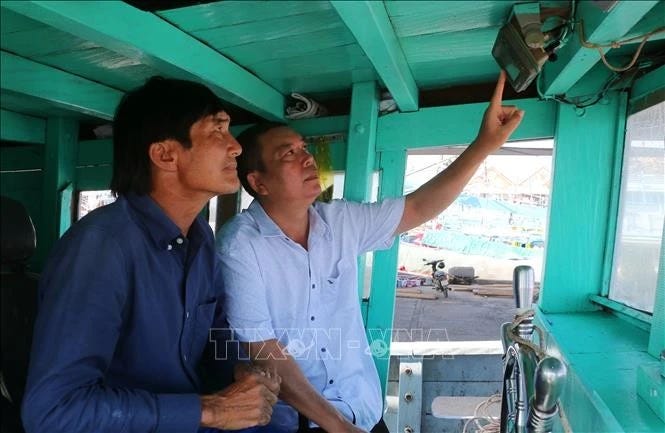
Regional Government in Vietnam Subsidises Satellite Subscription Fees to Prevent Illegal Fishing
The Mekong Delta province of Soc Trang in Vietnam has launched a two-year subsidy program for satellite subscription fees on fishing vessel monitoring devices, aimed at promoting regulatory compliance and addressing the European Commission’s “Yellow Card” warning on Vietnamese seafood exports. Effective January 2025, the policy provides financial support of up to 300,000 VND (approximately $11.84) per month for vessels 15 meters or longer, registered in the province, and equipped with mandated monitoring devices. Eligibility requires certifications for vessel safety, registration, fishing licenses, and food safety compliance, while vessels involved in illegal activities, such as boundary violations or disabling devices, are excluded. The initiative has already qualified 342 vessels for subsidies, with provisions for 374 to ensure broad coverage. Coupled with enhanced enforcement measures, including patrols and compliance monitoring, the policy aims to strengthen efforts against illegal, unreported, and unregulated (IUU) fishing, support the fishing community, and boost the province’s seafood export integrity.
Singapore Space Developments
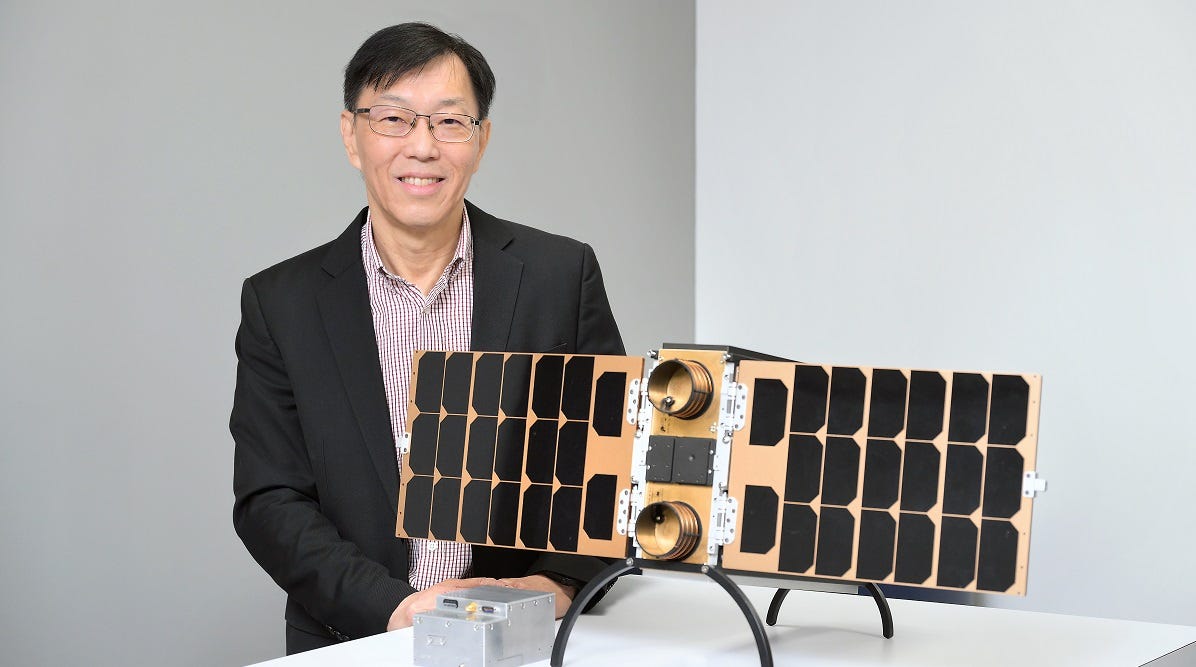
Singapore’s Addvalue Technologies Sees Strong Growth Potential for SATCOM IDRS Technology
Addvalue Technologies, a Singapore-based satellite solutions provider, is gaining traction in the competitive global satellite market with its proprietary Inter-Satellite Data Relay System (IDRS). This compact system enables uninterrupted 24/7 communication between low-Earth orbit (LEO) satellites and ground stations, addressing a key pain point for satellite operators: downtime. With 16 LEO satellites already equipped and orders for nearly 40 additional units in progress, the company projects over 100 IDRS-equipped satellites in orbit within three to four years. Despite its niche technology, Addvalue faces challenges such as limited pricing power, financial constraints, and subdued investor interest, exacerbated by inclusion in the SGX financial watchlist. However, buoyed by increasing demand for satellite connectivity amid geopolitical uncertainties and a growing global market projected to reach $45 billion by 2030, Addvalue is positioning itself as a key enabler in the hybrid satellite communication ecosystem. CEO Tan Khai Pang remains optimistic, highlighting the company’s dual growth pillars—IDRS and advanced digital radio solutions—as drivers of sustained growth and industry relevance in the coming years.
Former Kacific Employee Says Company Once Considered a Satellite-Based Blockchain Network
The convergence of satellite technology and blockchain, once an untapped opportunity, is now revolutionizing connectivity and decentralized finance, as seen in Spacecoin's satellite-powered blockchain network. Reflecting on earlier initiatives at Singapore’s Kacific Broadband Satellites Group, the Space Nodes project envisioned satellites as secure blockchain validators, leveraging their unique position as tamper-resistant, space-based computing nodes. This innovation aimed to redefine satellite bandwidth usage by integrating it into transaction validation processes, a concept supported by earlier proofs-of-concept like the Chainlink Hackathon-winning project. Despite technical feasibility, market readiness lagged, echoing similar experiences with Bitcoin mining at Tonga Cable Ltd. Today, Spacecoin's success validates these early efforts, demonstrating how timing and market receptivity are as critical as technological foresight. This evolution underscores a poignant lesson: the seeds of innovation often precede their moment, requiring pioneers to envision paths others eventually tread. While Kacific's vision laid the groundwork, it highlights the value of aligning technological breakthroughs with market timing for impactful transformation.
Other Regional Space News
Satellite Operators in Malaysia and Thailand Diversify into Geospatial Analytics
Satellite operators in Southeast and East Asia, including Japan’s Sky Perfect JSat, Malaysia’s MEASAT, South Korea’s KT Sat, and Thailand’s Thaicom, are aggressively diversifying into geospatial analytics and Earth observation technologies, moving beyond traditional satellite telecommunications. Following Intelsat's earlier $50 million investment in geospatial imagery startup BlackSky, regional operators are now exploring advanced technologies to expand their market reach. Thaicom’s Earth Insights business unit, for example, has a strategic partnership with U.S.-based Orbital Insight which delivers advanced geospatial analytics and data-driven intelligence services to Thailand and the region. Leveraging Orbital Insight’s AI-powered geospatial analytics platform, the collaboration enables Thaicom to provide insights from diverse data sources, including satellite imagery, anonymized location data, Automatic Identification System (AIS) data, and Internet of Things (IoT) inputs, for sectors such as natural resource management, transportation, and utilities. Malaysia’s MEASAT appears to be following suit, with the company offering Earth observation and geospatial data to customers as part of its offerings. This shift reflects the intense competition in Southeast Asia’s satellite market and a strategic pivot to capture opportunities in the emerging space economy, emphasizing innovation and long-term growth beyond conventional telecommunications services.
Denmark’s Quadsat Partners With Taiwan’s Auden to Provide SATCOM Network Solutions in Vietnam and the Philippines
Denmark’s Quadsat has partnered with Taiwan-based Auden Techno Corp. to expand its satellite network emulation and electromagnetic calibration services to Taiwan, Vietnam, and the Philippines. This collaboration marks Quadsat's first foray into Southeast Asia, leveraging Auden's expertise in connectivity solutions, including antenna design, wireless product testing, and system integration. Quadsat's drone-based technology and Software Defined Radio (SDR) enable precise in-situ testing and calibration of satellite networks and radio frequency systems, serving both civil and defense sectors by optimizing the use of the limited radio spectrum. The partnership aims to enhance regional access to Quadsat's advanced capabilities, supporting initiatives like national space and defense programs. Both companies view this collaboration as a strategic move to deliver innovative solutions and bolster regional technological infrastructure.
Myanmar Government Launches Myansat Channel on LaoSat-1
Myanmar's Ministry of Information has officially launched Myansat, the fourth Direct-to-Home (DTH) TV channel on the MRTV platform, aimed at providing quality information, education, and entertainment. The channel, developed in collaboration with Borderless Broadcast Co Ltd. and Lao Asia Pacific Satellite Co. Ltd., leverages the LaoSat-1 satellite and includes two packages offering up to 176 international and local channels. Myansat promotes Myanmar's cultural heritage, traditions, and socioeconomic development while integrating international programming. The initiative also focuses on expanding access to satellite-based education and agricultural knowledge in rural areas through the Multi-Village Plan and Sky Star Classroom Plan, supported by China Aerospace Science and Technology Corporation (CASC). Plans are underway to expand Myansat's offerings via a mobile application and partnerships with private broadcasters.
Be sure to catch up with space activities in the region in the next edition of Southeast Asia Space Monitor’s space roundup!




